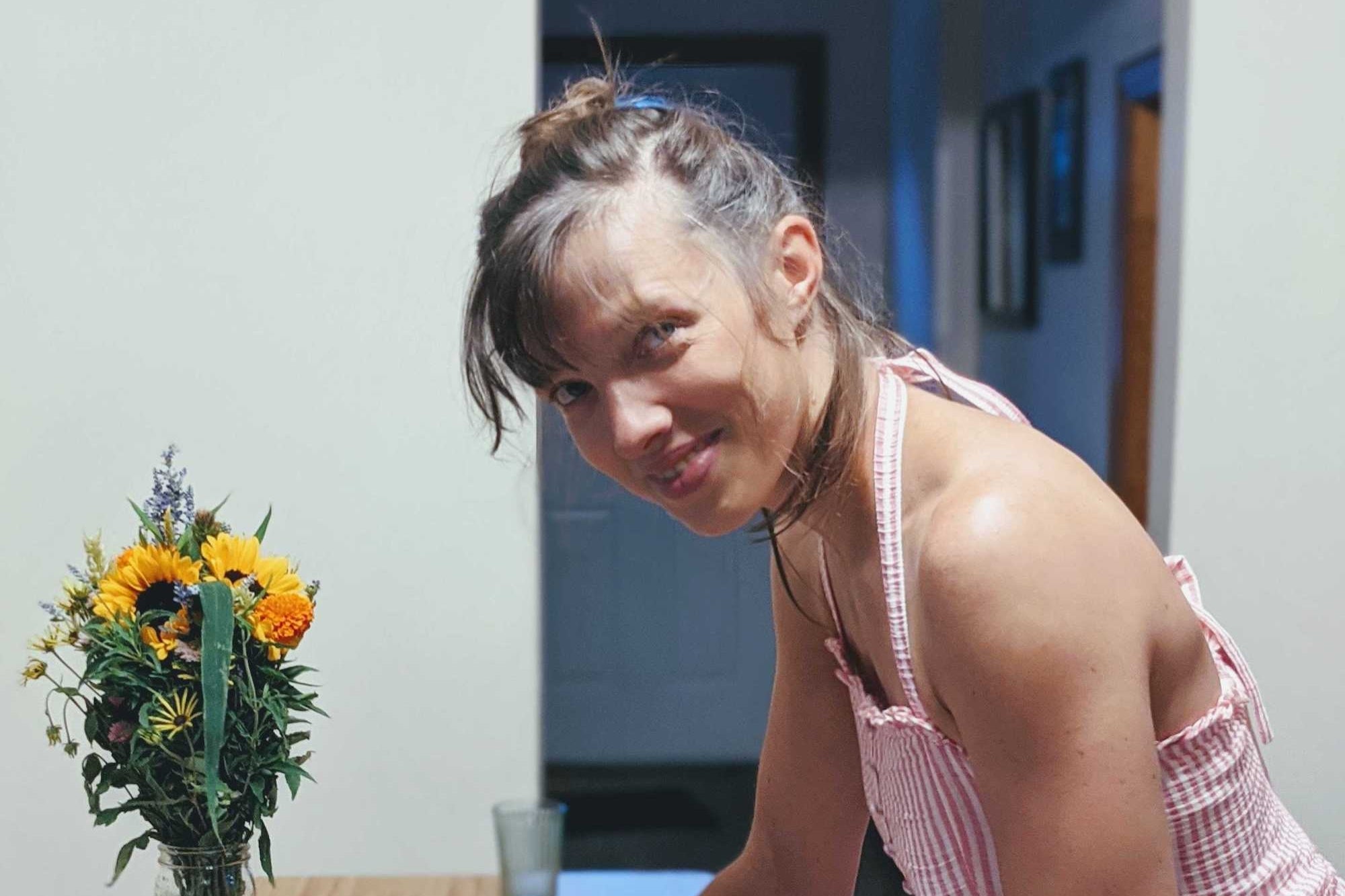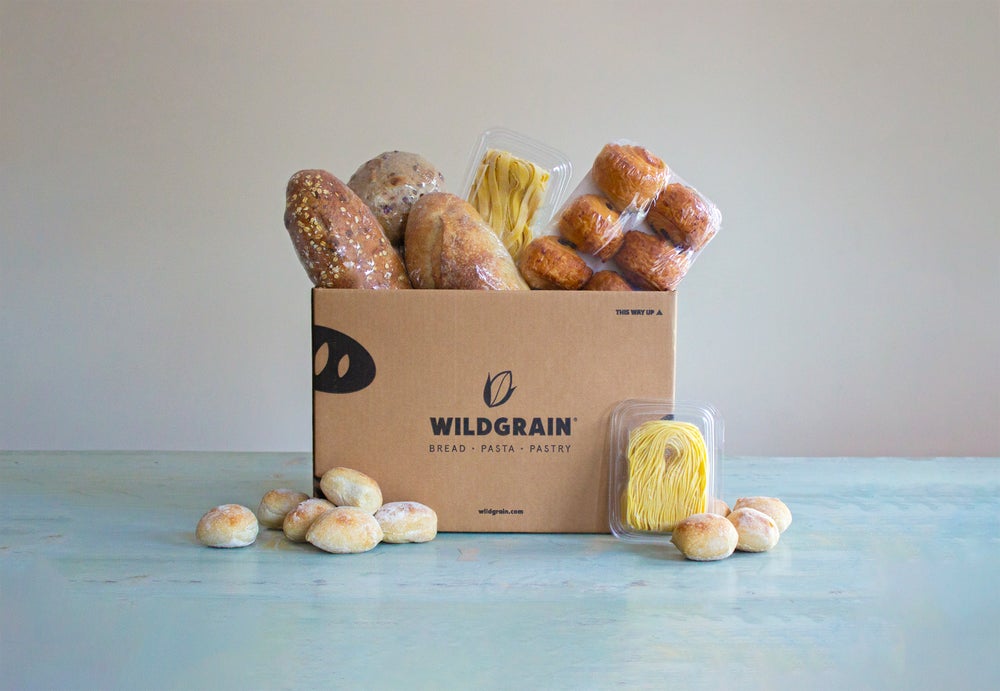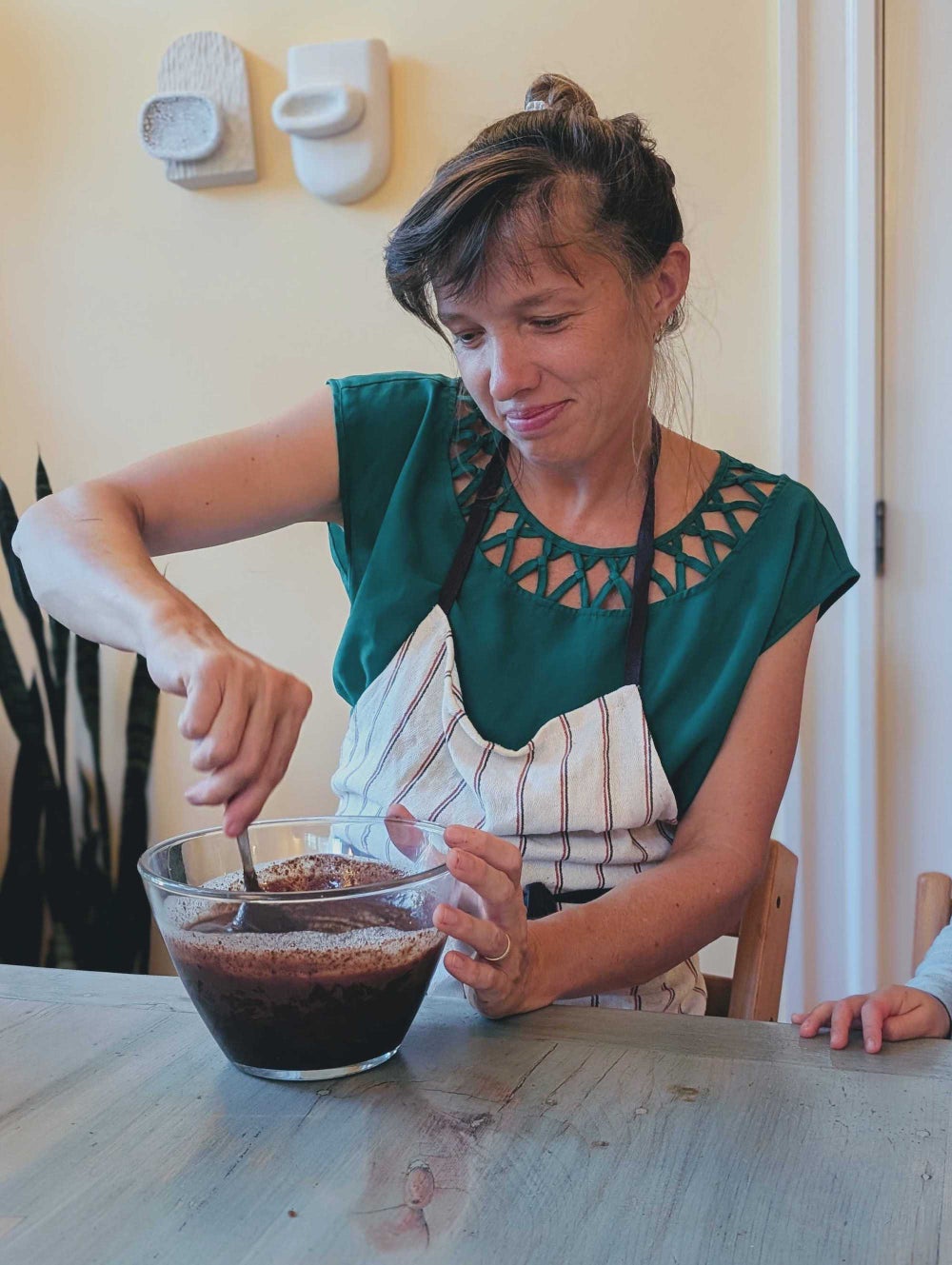Investing
She Started a Business That’s Earning Over $10M This Year

There’s no shortage of boulangeries in Paris, Johanna Hartzheim, co-founder of bakery delivery subscription company Wildgrain, tells Entrepreneur. “It’s such a cultural thing to have a fresh baguette. You buy a baguette every day, fresh croissants on every corner. It’s always warm because they churn bread so much that [every time] you go in, [it] just came out of the oven.”
Image Credit: Courtesy of Wildgrain. Johanna Hartzheim.
So, when Hartzheim and her husband and co-founder Ismail Salhi moved from France’s capital to Boston in 2015 to work on their music hardware company Qleek, the local carb options weren’t cutting it.
Unlike Europe, the U.S. didn’t offer fresh-baked bread and pastries block by block. Goods sat on bakery shelves longer, and those in supermarkets often came with a laundry list of unfamiliar ingredients, including fillers and shelf stabilizers. “That’s not right,” Hartzheim says. “Bread should be flour, water and salt. That’s it.”
Related: She Imagined a Specific Type of Culture Before Starting Her Business — Then Grew It From 1 Cart to Cult Status: ‘Magical Things Happening’
Hartzheim had always loved baking, but she’d been “a little afraid” of bread, which comes with a unique set of challenges. However, motivated by the lack of choices and wanting to eat as well as possible while pregnant with she and Salhi’s first child, she turned to a friend’s father, who’d been making sourdough for years, for mentorship.
Soon, she was spending every weekend learning the ins and outs of bread-baking, and it wasn’t long before she could produce more than she and her family could enjoy.
“For sourdough, if you make one loaf or 20 or 50, it’s the same amount of work because it’s the time that goes into it,” Hartzheim explains. “The night before, you have to refresh the start, and then the next day, you have to mix the dough, let it sit, and then, every hour, fold the dough. So if you just size up the overall volume, it doesn’t change the amount of time it takes.”
Hartzheim shared her loaves with friends and neighbors and then started experimenting with parbaking, in which the bread is baked partially and frozen before being baked the rest of the way through.
“People still want to eat better [and are] more conscious about what they feed their body.”
In 2020, the pandemic was hitting Hartzheim and Salhi’s first business hard, as in-person events were one of its largest acquisition channels. But Hartzheim saw an opportunity: There was a gap in the market — the same one that had initially inspired her to make her own bread.
“It’s so hard [when] the closest thing you have is a Walmart or something similar where you get Wonder Bread and not at all nice artisanal bread,” Hartzheim says, “and I think Americans are getting more conscious about eating healthy. It’s been trendy, but people still want to eat better [and are] more conscious about what they feed their bodies and give to their kids. Now that I’m a mother, it’s important to me what I give to my kids.”
The solution? Hartzheim envisioned shipping artisanal, slow-fermented bread and other baked goods straight to people’s doors.
So, in 2020, Wildgrain came together. The company received a $750,000 seed round check from the venture firm Bolt, which had also invested in Hartzheim and Salhi’s previous startup, Qleek, before launch. “It took off quickly, which was unexpected but great,” Hartzheim says. “We incorporated the company the same week my son was born, so it was kind of madness.”
 Image Credit: Courtesy of Wildgrain
Image Credit: Courtesy of Wildgrain
Related: She Batched a Beloved Product at Home, Inspired By a Black-Owned Business From the 1960s. Then It Became a Multimillion-Dollar Brand: ‘We’d Never Intended This.’
Despite the chaos, Hartzheim was well-equipped to tackle the new venture. She’d been baking bread for more than a year at that point, and her friends at ButcherBox, a Boston-based meat delivery subscription company, offered helpful advice about the subscription model. The sourdough scalability she’d discovered would also prove a major advantage.
“Most bakers were not fond of the idea of parbaking, of freezing bread.”
However, like most new businesses, Wildgrain faced some challenges along the way.
At first, the idea was to ship raw dough to customers. That way, people could bake their bread from scratch and enjoy maximum freshness, Hartzheim explains. Unfortunately, many people struggled to successfully bake the raw product, often lacking the required equipment, such as a Dutch oven, which mimics a professional bakery oven, trapping moisture and creating the proper puff.
“If you don’t have that [equipment] and just throw the dough on a sheet, it will rise weirdly and look awful. It’s a lot about the look since we sell our bread online,” Hartzheim says. “People like to post it on Instagram, and [we] work with influencers a lot. That’s how we reach our audience. So if it looks bad and just an ugly piece of dough, no one will be like, ‘Oh, that’s delicious. Let me buy this.'”
Related: He Started a Business on the Side of the Road. Then He Did ‘the Scariest Thing Ever’ — and Got $200,000 From Barbara Corcoran.
Additionally, Hartzheim needed more hands in the kitchen if the business was going to be a success. She and Salhi found a shared kitchen to serve that purpose, but the pandemic presented another obstacle: Only two people could work in the kitchen at once.
 Image Credit: Courtesy of Wildgrain
Image Credit: Courtesy of Wildgrain
As luck would have it, Hartzheim’s original bread-baking endeavor — the parbaking method — offered a twofold solution to the tricky product offering and limited production capacity. The process would ensure that customers baked the perfect loaf every time, and local bakeries could use it to increase Wildgrain’s output.
The natural next step was to find bakeries that would be open to freezing their bread before it finished baking — as it would turn out, not an easy feat. “Most bakers were not fond of the idea of parbaking, of freezing bread,” Hartzheim recalls. “It sort of goes against the way of artisanally making bread.” But with business down amid the pandemic, Hartzheim convinced them. It was “a big pivot point,” she says.
“As long as you’re motivated and passionate, I feel like you can do anything.”
Wilgrain’s dynamic approach and willingness to pivot have helped it continue to grow over the years. The company currently ships everywhere in the contiguous U.S., offering a no-commitment membership and customizable boxes full of frozen items that bake in 25 minutes or less, with no thawing required. The six-item box is priced at $99, and the 12-item box is priced at $159, both available in plant-based options as well.
Although the price-per-item cost is significantly higher than would typically be found on supermarket shelves, Hartzheim says customers are willing to pay a premium for the better-for-you baked goods — in part because the pandemic’s home bread-baking fad taught people just how difficult the process can be. The brand, only in its fourth year, is earning eight figures.
Related: After a Cancer Scare, She Bootstrapped a Business From Her Kitchen to 3,500 Walmarts. Here’s Her Secret Ingredient for Health — and Success.
To aspiring entrepreneurs hoping to break into the food industry and beyond, Hartzheim says the key is to have no fear — and to do what it takes to put yourself in a position to succeed.
“Just go for it because it’s something you learn while doing,” Hartzheim says. “It sounds kind of cliche, but as long as you’re motivated and passionate, you can do anything. I knew nothing about tracking, importing, all these things, but it’s not rocket science. You can learn anything or find the right people who do know these things.”
This Women Entrepreneur® article is part of our ongoing series highlighting the stories, challenges and triumphs of running a business as a woman.
Read the full article here

-

 Side Hustles6 days ago
Side Hustles6 days agoWhy the Best CEOs Think Like Anthropologists
-

 Side Hustles4 days ago
Side Hustles4 days agoThis User-Friendly H&R Block Software Package is Only $40, While Supplies Last
-

 Investing4 days ago
Investing4 days agoTikTok faces US ban deadline as users brace for fallout By Reuters
-

 Passive Income3 days ago
Passive Income3 days agoTrain for a New Tech Career in 2025 With This $25 Course Bundle
-

 Personal Finance5 days ago
Personal Finance5 days agoDecember inflation clouds Fed's outlook on interest rate cuts
-

 Personal Finance6 days ago
Personal Finance6 days agoCalifornia's homeowners insurance industry faces rough road ahead as wildfires continue
-

 Investing6 days ago
Investing6 days agoWhy Not Owning Bitcoin is Making You Poor
-

 Make Money6 days ago
Make Money6 days agoDon’t Settle: 5 Game-Changing Moves to Maximize Your Financial Advisor’s Impact


















